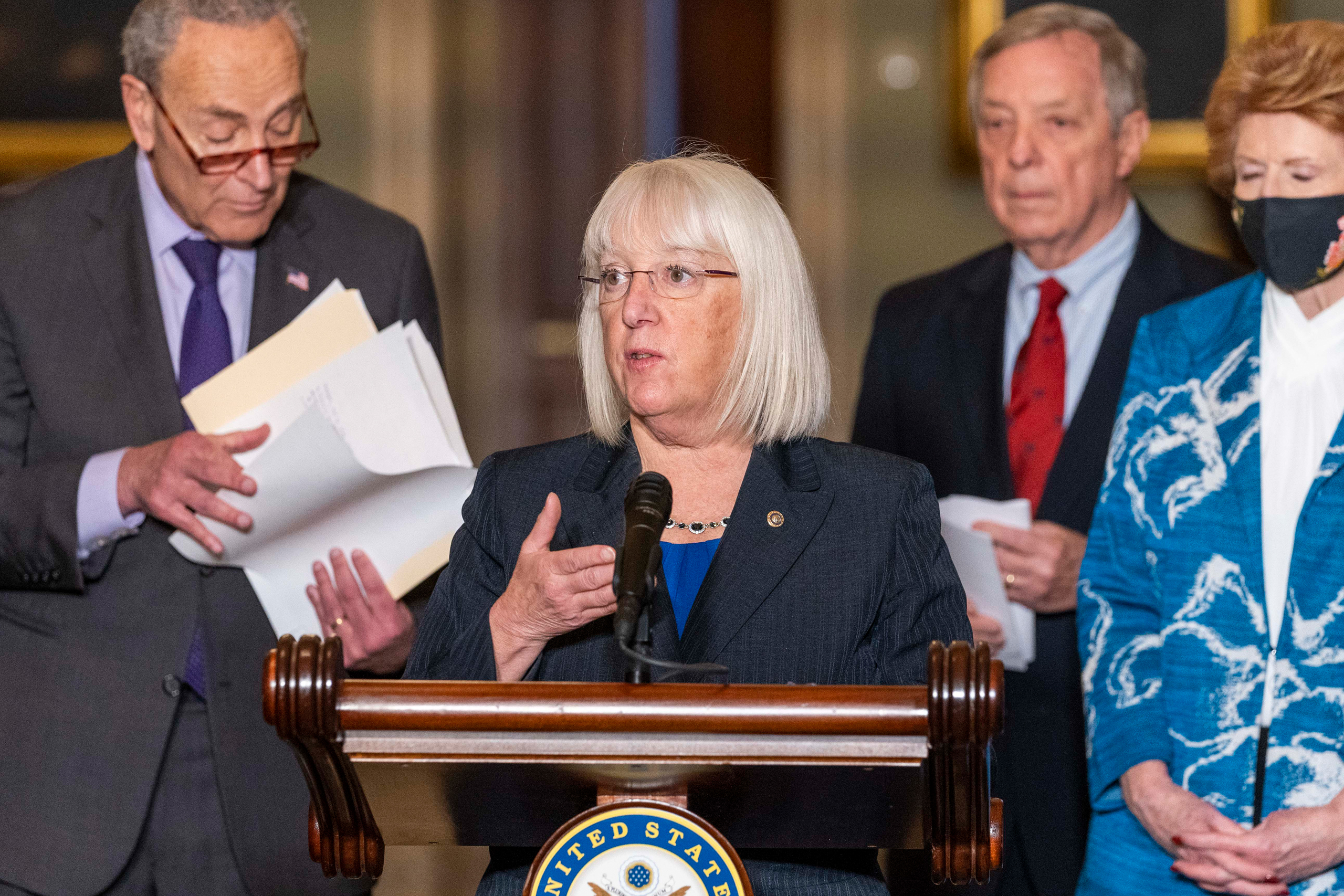Senator Murray: “It will help cut carbon emissions in a meaningful way – all while creating new, good paying jobs. And it will help us prepare for—and recover from—the severe and costly wildfires, floods, and other extreme weather we’re seeing here in Washington State.”
ICYMI: Senator Murray fought to include Climate provisions in the Infrastructure Bill – MORE HERE
***WATCH SENATOR MURRAY’S VIDEO HERE***
(Washington, D.C.) – Today, U.S. Senator Patty Murray (D-WA) highlighted the major climate investments included in the Bipartisan Infrastructure Law. The legislation will help Washington state and the country transition to cleaner energy and electric vehicles, make the electric grid more reliable, help prevent and fight wildfires, and more—all while creating good-paying, union jobs.
“Through the Bipartisan Infrastructure Law, our state will receive major federal support to start “electrifying everything” and make our infrastructure more resilient to increasingly extreme weather. From modernizing our electrical grid, to electrifying our school buses and ferries, to building new electric vehicle charging stations all across Washington state,” said Senator Murray. “It will help cut carbon emissions in a meaningful way – all while creating new, good paying jobs. And it will help us prepare for—and recover from—the severe and costly wildfires, floods, and other extreme weather we’re seeing here in Washington State.”
Notably, the Bipartisan Infrastructure Law includes Senator Murray’s Clean School Bus Act, which provides federal grants to help transition the nation’s diesel school buses to zero emission, electric buses. The bipartisan package will allocate $5 billion towards zero emission and clean buses, and thanks to Senator Murray, funds will be prioritized for communities where air pollution is greatest. Murray was also a leading voice in securing funding for wildfire resiliency and recover, culverts to boost salmon recovery efforts in Washington State, and the strongest possible climate provisions in the bipartisan law.
Below are some of the key climate and environment provisions in the Bipartisan Infrastructure Law.
Climate
- Power Infrastructure: $65 billion nationally for clean energy transmission by upgrading existing power infrastructure, including by building thousands of miles of new, resilient transmission lines to facilitate the expansion of renewable energy.
- Electric Vehicle Infrastructure: Washington state would expect to receive $71 million over five years to support the expansion of an EV charging network in the state, and also have the opportunity to apply for the $2.5 billion in grant funding dedicated to EV charging in the bill.
- Clean School Buses: Includes key provisions from Senator Murray’s Clean School Bus Act, including invests $5 billion in zero emission and clean American-made buses, which will prioritize students living in communities hardest hit by pollution.
- Electric Ferries: $2.5 billion nationally, for electric and hybrid ferries.
- Climate Resiliency and Western Water Infrastructure: $50 billion nationally, to make infrastructure more resilient and protect against droughts, floods and wildfires, in addition to a major investment in weatherization.
- Clean Drinking Water: Based on the traditional state revolving fund formula, Washington will expect to receive $882 million over five years to improve water infrastructure across the state and ensure that clean, safe drinking water is a right in all communities.
- Wildfires: Based on historical formula funding levels, Washington will expect to receive $39 million over five years to protect against wildfires and $18 million to protect against cyberattacks. Washingtonians will also benefit from the bill’s historic $3.5 billion national investment in weatherization which will reduce energy costs for families.
- Environmental Remediation: $21 billion nationally in environmental remediation, making the largest investment in addressing the legacy pollution that harms the public health of communities and neighborhoods in American history, creating good-paying union jobs in hard-hit energy communities, and advancing economic and environmental justice.
- See more details HERE.
Salmon Recovery
- Culvert Removal, Replacement, and Restoration and other key funding: $1 billion nationally for culverts will provide grants to states for the removal, replacement, and restoration of culverts to address flow of water through roads, bridges, railroad tracks, and trails.The bill also includes$172 million for the Pacific Coastal Salmon Recovery Fund (PCSRF) and $400 million to enhance fish passage, among other important habitat investments.
- See more details HERE.
###


